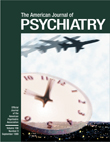Competence of Depressed Patients for Consent to Research
Abstract
OBJECTIVE: The capacities of depressed patients to consent to research have been questioned by commentators who fear that the cognitive effects of a disorder may impair subjects’ abilities to protect their interests. This study used a new instrument for assessing depressed patients’ capacities to consent to research and examined their performance, including the relation between severity of depression and extent of impairment. METHOD: Twenty-six female outpatients with major depression (assessed with the Schedule of Affective Disorders and Schizophrenia—Lifetime Version) enrolled in a study of maintenance psychotherapy were recruited for this project. Consent-related abilities were measured with the MacArthur Competence Assessment Tool—Clinical Research (MacCAT-CR) 1 week after intake and again 8–10 weeks later. Depressive symptoms were measured by the Hamilton Depression Rating Scale. RESULTS: Almost all subjects performed quite well on the capacity measures and maintained that level of performance over time. There was no correlation between performance and degree of depressive symptoms and little relation to prior research experience. Some subjects appeared confused about the extent to which decisions about assignment to treatment groups would be made on the basis of their clinical condition rather than randomly. CONCLUSIONS: This outpatient group with major depression showed few impairments in their decision-making capacities related to research. As in other studies, some concerns were raised about subjects’ appreciation that treatment assignments would not be individualized for their needs. Examination of hospitalized patients and those with psychotic depression would help to determine whether they show greater degrees of impairment. The MacCAT-CR was easily adapted for use with this depressed group.



